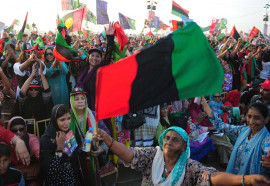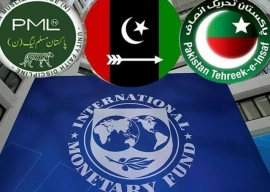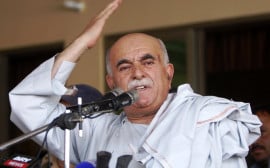
Small scale flour mills or atta chakkis fear they will have close down in Ramazan because of the Sindh government’s subsidised flour rates.
The Ramazan package includes a Rs2.25 billion subsidy on flour. It will be sold at the price of Rs21 per kilogramme, which is Rs10 less than the rates set by the chakkis.
According to the food department, subsidised flour will be sold at bachat bazaars, select outlets and stalls set up by flour mills. People in Hyderabad and other cities of Sindh buy flour mostly from the chakkis.
The Sindh government will release 245,000 tons of wheat for the Ramazan Package from around 1.4 million tons it has procured from a net harvest of 4.2 million tons in Sindh. Around 120,000 tons will be given to mills in Karachi, and the remaining to other cities of the province. According to Muhammad Hanif Rajput, general secretary of the association, there are 172 flour mills in Sindh, of which 80 are in Karachi and 21 in Hyderabad.
However, the director for the Food Department, Salahuddin Shaikh, told The Express Tribune that a meeting under the commissioner of Hyderabad division will decide how the flour will be sold, on Saturday. He refused to provide details on whether the government will also give a quota of the subsidised flour to the atta chakkis.
The Atta Chakki Owners Association, a group representing 218 chakkis, criticised the government’s policy of denying them a quota. “It will be the third consecutive time in Ramazan that the chakkis will be denied a quota, and all the wheat will go to the flour mills,” said Muhammad Javed Qureshi, the president of the association.
From September to March, these chakkis buy around 10,000 tons of wheat per month from the government. From March to September, they buy it from the open market. “Three years ago, Ramazan fell in September and it was the last year when we were given a quota,” said Qureshi. “We sold flour at the rates fixed by the government.”
Chakkis in Hyderabad and Sindh not only outnumber the mills in the province, but the quality of their flour also surpasses the ones produced by the mills, he said. “The price of flour sold at chakkis is usually Re1 to Rs2 higher than the rates of 5kg to 10kg bags prepared at the mills,” said Qureshi.
Unlike the chakkis, the roller machines at the flour mills either reduce or remove four main parts of wheat, including bran, semolina and starch. “Therefore, flour produced by the mills is also less nutritious as it is lower on fibre, magnesium, calcium, iron, potassium and other nutrients. The association has appealed to the government to provide chakkis subsidised wheat. “The move will have dual benefits for the buyers who will get flour which is rich in nutrients without having to stand in long queues while fasting,” Qureshi added.
Published in The Express Tribune, July 30th, 2011.




1704571949-1/Landgrab-Korangi-(2)1704571949-1-270x192.webp)












COMMENTS
Comments are moderated and generally will be posted if they are on-topic and not abusive.
For more information, please see our Comments FAQ